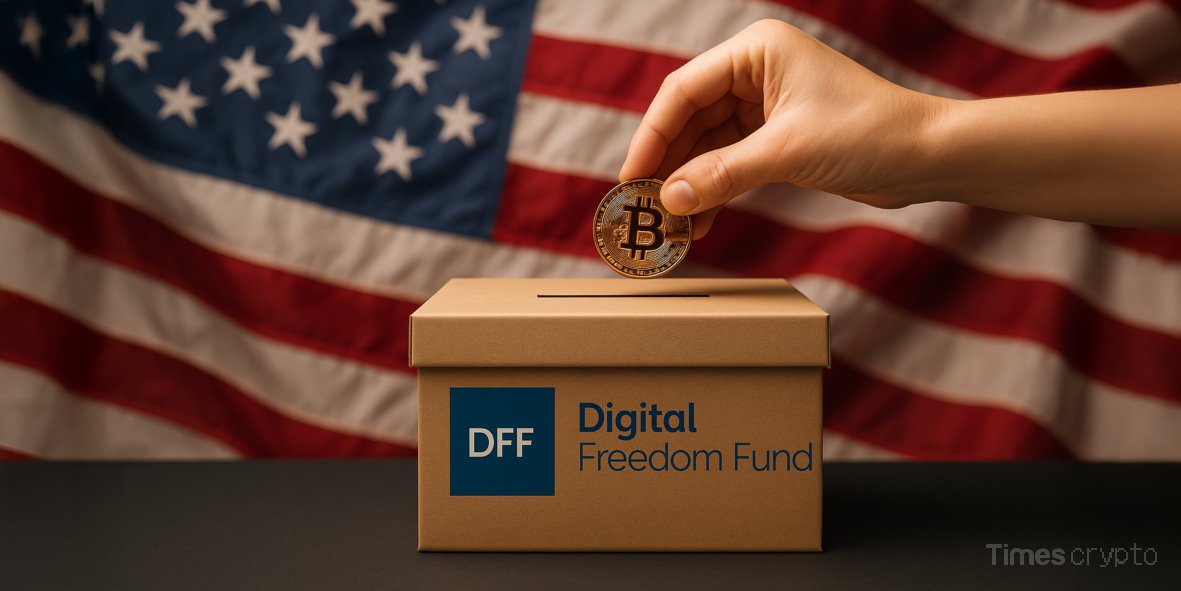Key Takeaways
- Tyler and Cameron Winklevoss donated 188.45 BTC ($21 million) to the pro-Trump Digital Freedom Fund.
- The PAC said it will push for a “Skinny Market Structure Bill” and legal protections for software developers, while opposing central bank digital currencies.
- It also outlined other priorities, including fair access to banking, open banking rules, and mandatory regulatory exemptions for digital assets.
- The donation underscores the growing political influence of crypto executives as Trump pledges to make the U.S. the world’s leading hub for digital assets.
Table of Contents
Tyler and Cameron Winklevoss, the billionaire twins behind cryptocurrency exchange Gemini, said on Tuesday they donated $21 million worth of bitcoin to the Digital Freedom Fund, a political action committee backing U.S. President Donald Trump and his digital asset policies.
The donation, amounting to 188.45 BTC, marks one of the largest single crypto contributions to a U.S. political group and underscores the alignment between Trump’s second-term agenda and crypto industry leaders seeking more transparent regulation.
In a post on X, the Winklevoss twins announced the donation and outlined the fund’s priorities, including a “Skinny Market Structure Bill,” protections for software developers, opposition to central bank digital currencies, and broader measures to expand access to banking and financial data.
Focus on Midterm Elections
The Digital Freedom Fund said it will use the money to support Republican candidates aligned with Trump’s pro-crypto stance in the 2026 midterms. The PAC warned that if Democrats retake control of Congress, they could obstruct the president’s policies through “bogus impeachments, lawfare, and delay tactics.”
Push for “Thoughtful Legislation”
The Winklevoss-backed PAC said it will campaign for a streamlined “Skinny Market Structure Bill” designed to minimize bureaucracy, prevent regulatory overreach, and encourage blockchain innovation.
Protections for Software Developers
The Digital Freedom Fund pledged to push for laws safeguarding software developers and publishers from liability tied to how their code is used.
To make its case, the fund cited Section 230 of the 1996 Communications Decency Act, saying the legal shield it provided to online platforms was pivotal in the rise of the Internet and the growth of the digital economy.
Anti-CBDC Stance
The PAC also called for legislation banning central bank digital currencies, or CBDCs, framing them as “totalitarian technologies” that could be weaponized by politicians or bureaucrats to erode civil liberties. It argued that prohibiting CBDCs would help preserve personal freedom in everyday financial life and keep digital money from becoming a tool of government surveillance.
Banking for All: Access, Data and Fair Rules
Beyond crypto-specific bills, the Digital Freedom Fund outlined a broader financial agenda. It said it would support legislation guaranteeing all individuals and businesses the right to open and maintain bank accounts regardless of political views, religious beliefs, or lawful commercial activity, and urged Congress to make discriminatory banking practices a criminal offense.
The fund said it would support open banking rules allowing consumers to share their financial data with authorized third-party apps at no cost, describing ownership and control of such data as a human right and a pillar of American capitalism.
It also called on regulators to adopt binding obligations that would create exemptions for digital assets within existing statutes. The group said this approach would reduce delays, keep licensing rules fair across different technologies, and give entrepreneurs the certainty they need to build their businesses in the United States.
Keeping the Momentum Alive
The fund referenced the President’s Working Group (PWG) report on digital financial technology, released July 30, which called for strengthening U.S. leadership in crypto innovation.
The report paved the way for SEC Chairman Paul Atkins and CFTC Acting Chair Caroline Pham to unveil “Project Crypto” and a “Crypto Sprint” program the following week to put its recommendations into action.
Commenting on these developments, Winklevoss said: “This was everything we had ever hoped for and more,” describing the report as a “watershed moment” for U.S. crypto policy.
Rejecting “Regulatory Capture”
The Digital Freedom Fund also pledged to oppose what it described as regulatory capture, where regulations end up favoring big players and making it harder for startups to compete.
Winklevoss compared the U.S.’s $150 company registration process to Haiti’s $23,000 cost and six-month wait, warning that excessive compliance could create “Haiti-like conditions” for American crypto entrepreneurs.
“We want everyone to be able to compete,” the statement read. “If you can’t win in a free and open market, then you don’t deserve to win at all.”
Broader Agenda
The PAC noted that its priorities extend beyond market-structure reforms. It said it would also support measures such as a de minimis tax exemption for small bitcoin transactions, along with other proposals aimed at making cryptocurrency easier to use in everyday commerce.
“Our private position will always be the same as our public position on these matters,” Winklevoss said, urging other pro-crypto groups to join the fund’s efforts.
Crypto’s Rising Influence in Washington
The donation reflects the growing influence of crypto executives in U.S. politics as the industry pushes for clearer rules and relief from what it sees as government overreach.
With Trump vowing to make the United States the world’s “crypto capital,” figures like the Winklevoss twins are positioning themselves as key players in shaping the country’s approach to digital assets.
Read More: Crypto Exchange Gemini Moves Towards IPO as Financial Filings Reveal Losses, Ripple Credit Deal







